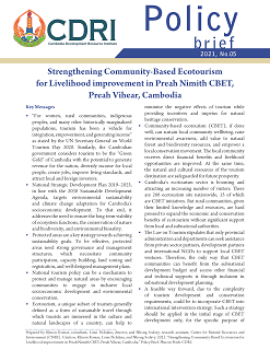NHONG Sodavy
Former Research Assistant
Ms. NHONG Sodavy is a research assistant at the Center of Natural Resources and Environment, who has joined CDRI in 2020. Sodavy was an outstanding student with a bachelor's degree in Development Studies, minoring in Natural Resource Management and Development, and another degree in Professional Communication from the Institute of Foreign Languages (IFL), Royal University of Phnom Penh (RUPP). As an early career female researcher, Davy has experience working on various research projects relating to climate change adaptation, water governance and management, gender and local community empowerment, renewable energy, and other fields of social science research studies. Currently, she is involved in a team in different research studies focusing on Water Diplomacy in Langcang Mekong, and Towards Zero-Carbon in Asia Region. Her research interest lies in critical fields of resource governance and environmental economy.
Email : sodavy@cdri.org.kh
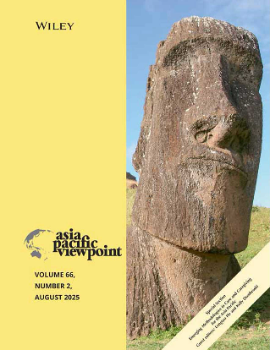
Understanding how actors perceive and anticipate future states of the world is gaining traction in climate change governance scholarship and related calls for sustainability transformations. However, smallholder farmers, indigenous groups, and local communities, who are expected to bear disproportionate burdens of loss and damage from climate c...
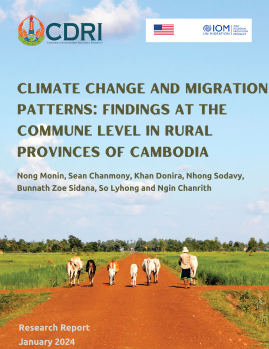
Migration forces rural people to find more and better jobs, which is key in generating incomes to sustain livelihoods and ensure food security in times of environmental change. In addition to agricultural production, climate change affects health, water, and energy resources and causes migration and conflict. The impacts of climate change on me...
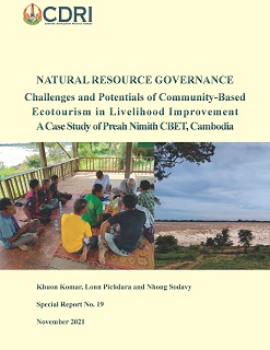
Community-based ecotourism (CBET) has long been considered an effective natural resource governance policy for both forest conservation and livelihood improvement in developing countries around the world. Cambodia is no exception. The Cambodian government has been promoting and establishing CBET sites countrywide. Preah Nimith CBET, located in a re...
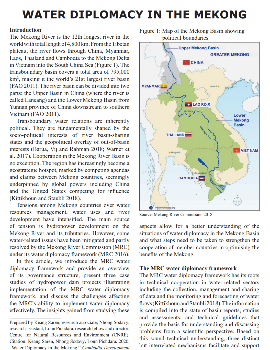
In this article, we introduce the MRC water diplomacy framework and provide an overview of its governance structure, present three case studies of hydropower dam projects illustrating implementation of the MRC water diplomacy framework, and discuss the challenges affecting the MRC’s ability to implement water diplomacy effectively. The insights gai...
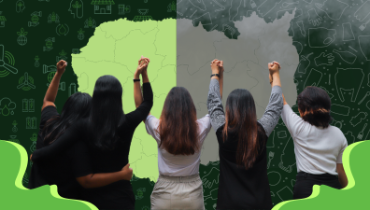
Cambodia’s susceptibility to climate change is heightened by its limited ability to adapt. Women experience more pronounced consequences from climate change than men. As Cambodia strives to achieve carbon neutrality by 2050 amidst mounting climate uncertainties, it becomes crucial to examine the effects of this transition on women’s livelihoods and...
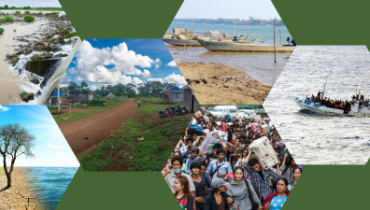
Links between climate change and migration in Cambodia need to be empirically substantiated. It is known that climate change poses a threat to agricultural production and impacts men and women in different ways in terms of a shift in employment, access to resources and assets, social norms and gender stereotypes, socioeconomic opportunities, and ad...
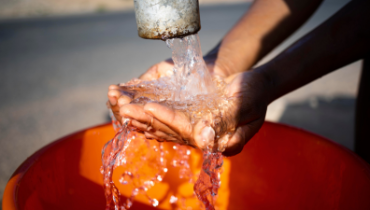
Climate resilient water safety planning (WSP) has commenced in Cambodia, and new guidelines have been developed by government agencies to inform and guide climate-resilient water resources management and water security. These two new guidelines have been developed by the Ministry of Industry, Science, Technology & Innovation (MISTI) and the Ministr...
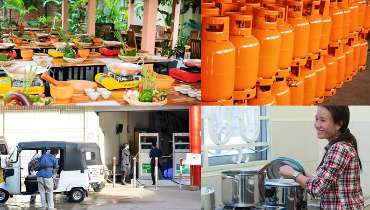
In Cambodia, the source of fuel for households from liquefied petroleum gas (LGP) accounts for 56 per cent of urban settlements and 11 percent of rural residents, and it ranks second after firewood and charcoal. The source of electricity used by households countrywide is quite small at only about 3 per cent. The demand for LPG consumption is predic...
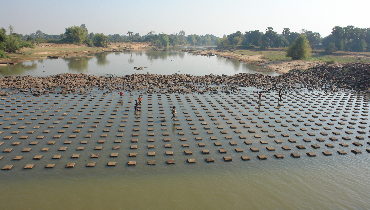
The Asian Mega Deltas (AMD) program is one of the new OneCG initiatives that commenced in April 2022 and will run till at least 31 December 2024 (Phase 1). The One CG involves closer working modalities amongst the numerous CG Centers to provide more coordinated and integrated support to governments and civil society in pursuing more productive, div...
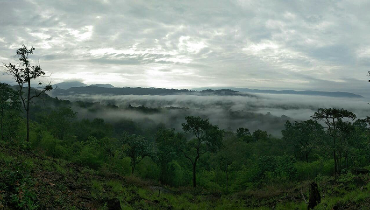
CDRI research team works together with national universities, governmental institutions and NGO/CSOs in both Cambodia and Lao PDR to develop a research proposal applying for EXPLORE Research grant on forest landscape governance. The proposed research title is “Co-adaptive forest management through climate-smart technology and communal social capit...
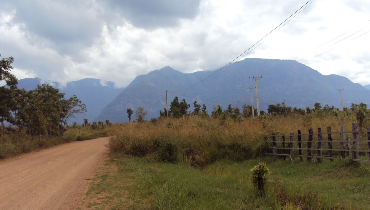
This study hypothesizes that the reason for Cambodia’s moving toward a more fossil fuel-based energy could be due to the misperceptions or underestimated co-benefits of renewable energy in relation to the associated costs. If the support for renewable energy depends on the framing, then public support for renewable energy from both policy makers an...
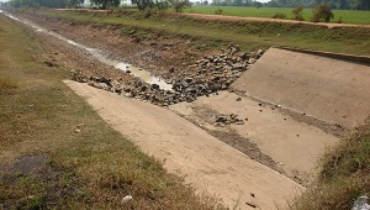
The Cambodia water scarcity profile is a stock-taking exercise designed to understand what water scarcity challenges exist in the country and what is the current approach of government to managing water scarcity. The focus is on understanding the policy instruments available and how effective planning and management measures have been in addressing...
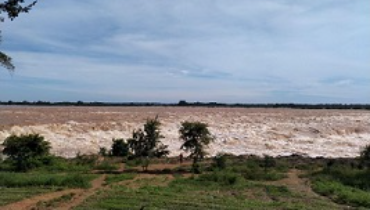
Community based ecotourism has been considered as an effective natural resource governance policy for both forest conservation and livelihood improvement, and increasing trend worldwide. The Royal Government of Cambodia has been promoting and establishing community based ecotourism sites (CBET) across the countries. Preah Nimith CBET is locate...
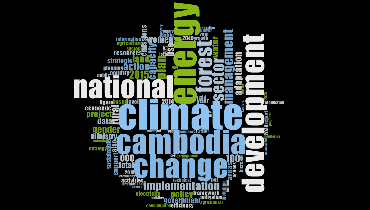
Working to support Institute for Global Environmental Strategies (IGES), CNRE contributes to developing a comprehensive report on the status of climate change in the ASEAN region, which provides an overall outlook on the state of play of climate change in the context of the ASEAN region and can support ASEAN member state (AMS) and join the pro...

